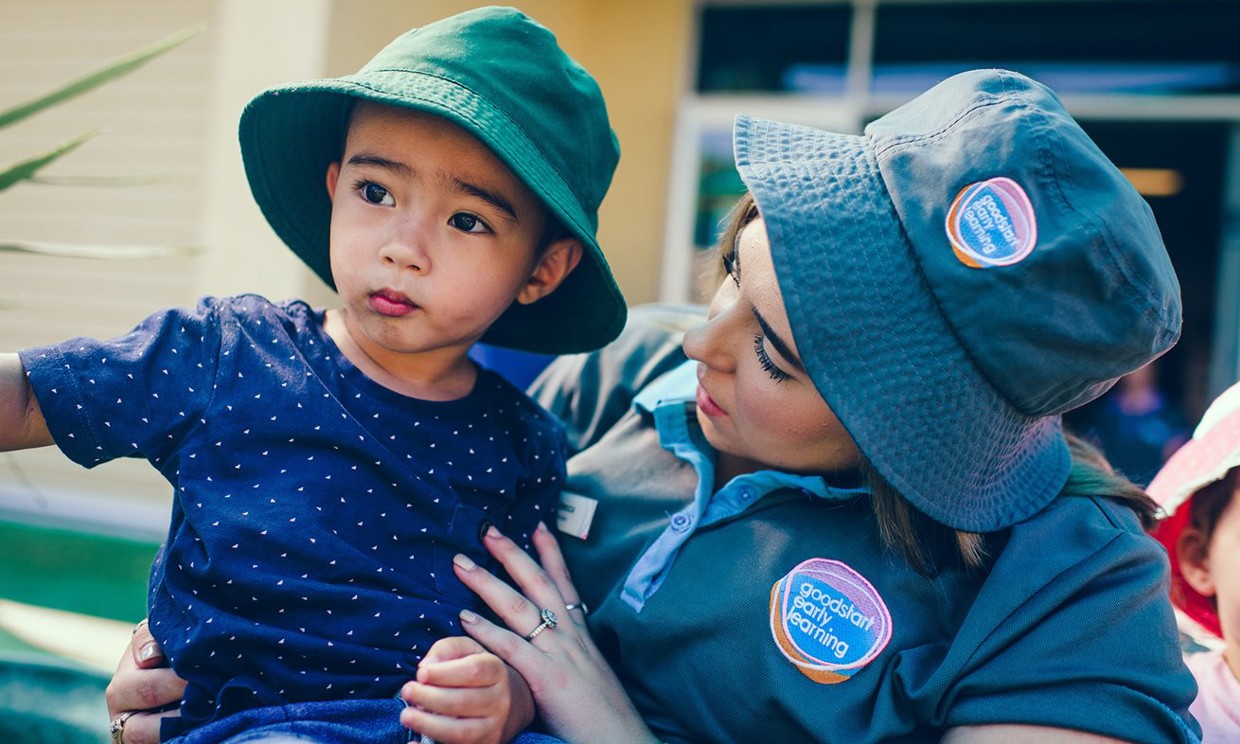There are many skills children need to learn before starting school, but one of the most important of all is self-regulation.
Self-regulation is all about a child being able to recognise their feelings and manage their behaviour. It’s something that’s developed from birth and with every new stressful experience, of which there are many in young childhood.
We know as adults that regulating our emotions isn’t always as easy as we’d like, and it’s an even bigger task for young children.
Emotional regulation skills help children better cope with stress, develop stronger relationships, negotiate effectively with other children, and have a more positive sense of self.
These are all important skills for mental health and happiness, and through the lens of a young child are critical to a smooth transition to school.
It’s one of the reasons that social-emotional development plays such a central role in early childhood education as Tom Brien, teacher at Goodstart Mona Vale, explains.
“It’s my firm belief that if a child is emotionally intelligent and can self-regulate they will more easily or more naturally pick up the other skills they need,” says Tom.
“This is a foundational skill that enables further learning, and if the social emotional block is missing in their developmental pyramid, the rest of the skills really can come crashing down.
“If a child hasn’t developed these skills by the end of the preschool year, I often recommend a second year in preschool rather than starting primary school.
“My fear with these children is that they’ll regress or become lost because they’re not quite equipped to navigate the challenges of school.”
Parents and educators play an important role in helping children to develop self-regulation skills.
“Children develop these skills by observing how adults in their life manage their own emotions, so it’s important that we set the right example and respond appropriately to challenges,” continues Tom.
“Acknowledging and labelling a child’s emotions rather than dismissing or denying them is also important, as it helps children describe what they’re feeling and learn that feeling things is normal.
“We also place a strong focus on the development of empathy and understanding how our actions impact and influence those around us, and the potential for this impact to be positive wherever possible.
“We’ve also embedded a lot of mindfulness activities, where we’ll periodically pause and focus on breathing, and notice the emotions we are feeling.
“It all helps to develop a child’s emotional intelligence and practice the habits of being a good human.”
Self-regulation is all about a child being able to recognise their feelings and manage their behaviour. It’s something that’s developed from birth and with every new stressful experience, of which there are many in young childhood.
We know as adults that regulating our emotions isn’t always as easy as we’d like, and it’s an even bigger task for young children.
Why is self-regulation important for children?
Emotional regulation skills help children better cope with stress, develop stronger relationships, negotiate effectively with other children, and have a more positive sense of self.These are all important skills for mental health and happiness, and through the lens of a young child are critical to a smooth transition to school.
It’s one of the reasons that social-emotional development plays such a central role in early childhood education as Tom Brien, teacher at Goodstart Mona Vale, explains.
“It’s my firm belief that if a child is emotionally intelligent and can self-regulate they will more easily or more naturally pick up the other skills they need,” says Tom.
“This is a foundational skill that enables further learning, and if the social emotional block is missing in their developmental pyramid, the rest of the skills really can come crashing down.
“If a child hasn’t developed these skills by the end of the preschool year, I often recommend a second year in preschool rather than starting primary school.
“My fear with these children is that they’ll regress or become lost because they’re not quite equipped to navigate the challenges of school.”
How can educators and parents help children develop self-regulation skills?
Parents and educators play an important role in helping children to develop self-regulation skills.“Children develop these skills by observing how adults in their life manage their own emotions, so it’s important that we set the right example and respond appropriately to challenges,” continues Tom.
“Acknowledging and labelling a child’s emotions rather than dismissing or denying them is also important, as it helps children describe what they’re feeling and learn that feeling things is normal.
“We also place a strong focus on the development of empathy and understanding how our actions impact and influence those around us, and the potential for this impact to be positive wherever possible.
“We’ve also embedded a lot of mindfulness activities, where we’ll periodically pause and focus on breathing, and notice the emotions we are feeling.
“It all helps to develop a child’s emotional intelligence and practice the habits of being a good human.”


